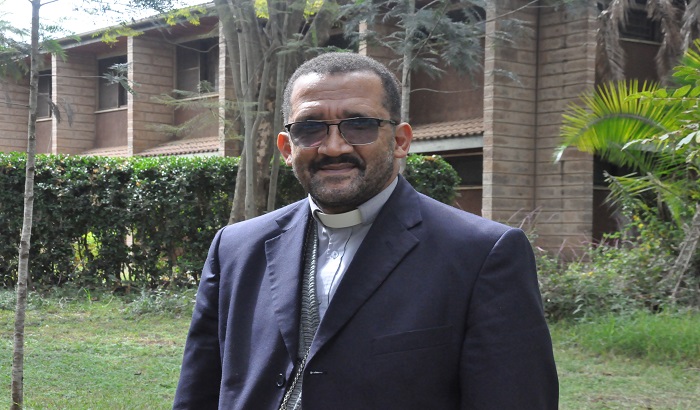By Paschal Norbert
PRETORIA, APRIL 28, 2023 (CISA)– Rt. Rev Sithembele Sipuka in a critical analysis of the state of the nation and a reflection of 29 years of freedom in South Africa has called for the decentralization of economic activities and inclusion of all in wealth creation through education as a way of achieving full political and economic freedom for South Africans.
“If we correct the misdeeds of those in leadership, remove the conditions that make for corruption, decentralize the economy and educate all citizens with skills and values, then the next decade of freedom will see us being better than we are as a country,” said Bishop Sipuka on Freedom Day.
As the country celebrated Freedom Day 2023 on April 27, a day set for the commemoration of the first democratic elections held in South Africa on April 27, 1994. The first post-apartheid national elections where anyone could vote regardless of race, Bishop Sipuka is full of praise for the negotiated settlement that allowed a “peaceful transition from a white minority and oppressive rule to a full democratic dispensation.”
“With the experience of being free today, some unfairly blame those who negotiated the present dispensation for having failed to bring true and full political and economic freedom for all. The situation at the time of negotiations, for those of us who lived through it, was volatile and could have easily spiralled into civil war. One needs to look at countries like Sudan, where civil war has been the order of the day since independence, with catastrophic consequences for the countries involved and perpetual pain and suffering for the ordinary masses,” highlighted Bishop Sipuka.
He explained, “The negotiated settlement of 1994 was not the best in terms of principles, pragmatically, it was the best; otherwise, we would still be languishing in unending civil war and destruction if the experience of other African countries is anything to go by. We, therefore, thank those who negotiated the present dispensation, which could be better but the best that could be achieved at the time.”
The President of the Southern African Catholic Bishops’ Conference (SACBC) notes that the first decade after the settlement saw an improved status of life among South Africans; houses were being built, water provided, electricity supplied, roads constructed, health facilities created, social grants implemented, and employment created. Unfortunately, he says, the perennial problems that the country is experiencing started in the second decade.
“As we approach the third decade of freedom, we are now descending into lawlessness and criminality, which the state appears unable to handle. It is, therefore, not the failure of the new dispensation that we are in this pitiful situation,” he says.
To arrest this worrying situation, the bishop contends that the misdeeds, which the Zondo Commission highlighted in their report, need to be corrected and the conditions enabling them to thrive dismantled.
“…what needs to be done is to create conditions for all people of this country to be economic agents that generate wealth instead of being beneficiaries of grants from the income tax of few people,” he states.
He challenges the leaders to be visionary, imaginative “and bold to facilitate the creation of industries or sectors in rural areas where the concentration of the human capital of this country is found.”
“Leaders must stop paying lip service to what needs to be done to create employment and begin to do something to affirm the dignity of our people by enabling them to earn their income so that they become truly free from the patronage of politicians,” he counsels.
The local ordinary of Mthatha is adamant that decentralization of economic activity and inclusion of all in wealth creation must be concurrently done with the beefing up of education.
“Beefing-up education must include a system of educating children according to their ability instead of forcing all children into a high school system and setting up more than half of them for failure,” says Bishop Sipuka.
